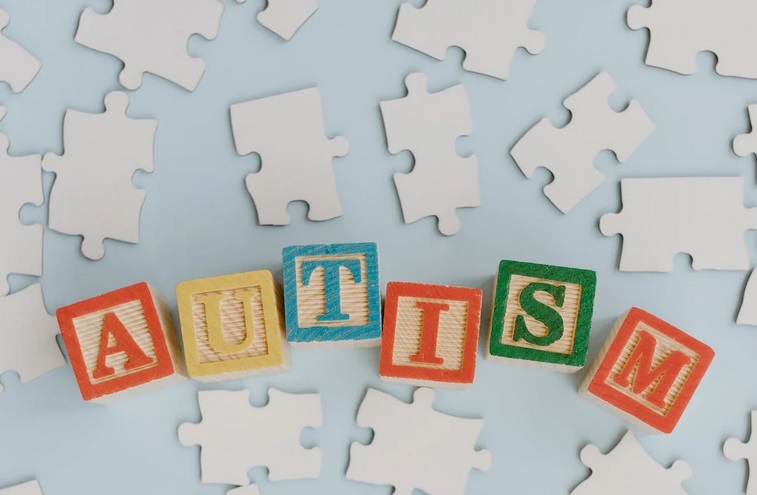NordenBladet – Autism is a complex and sometimes misunderstood condition that affects millions of people worldwide. Despite the growing awareness of autism, there are still many questions and misconceptions surrounding the condition. In this article, we will answer the 14 most common questions people ask about autism on the internet.
Exploring the Top Frequently Asked Questions about Autism
What is autism?
Autism is a neurodevelopmental disorder that affects social interaction, communication, and behavior. It is a spectrum disorder, meaning that the severity and symptoms can vary greatly from person to person.
What causes autism?
The exact causes of autism are not yet known, but it is believed to be a combination of genetic and environmental factors.
Is autism curable?
No, there is no cure for autism. Autism is not curable. It is a neurodevelopmental disorder that affects social interaction, communication, and behavior. While there is no cure, early intervention and therapy can greatly improve outcomes for individuals with autism.
What are the symptoms of autism?
The symptoms of autism can vary greatly, but common signs include difficulties with social interaction, communication, repetitive behaviors, and limited interests.
How is autism diagnosed?
Autism is typically diagnosed through a combination of medical and developmental evaluations, including assessments of social interaction, communication, and behavior.
Can autism be treated?
While there is no cure for autism, there are various treatments and interventions that can help individuals with autism manage their symptoms and improve their quality of life. These can include behavioral therapy, speech therapy, and medication.
Is there hope that medicine will advance to the point where autism can be cured?
There is currently no cure for autism, and it is not known if a cure will be discovered in the future. However, advances in medical research and technology are constantly being made, and it is possible that new treatments and interventions may become available that can greatly improve outcomes for individuals with autism. It is important to note that autism is a complex and diverse condition, and any future developments will likely involve a combination of genetic, environmental, and behavioral factors.
What is the prevalence of autism?
The prevalence of autism has been increasing in recent years, and it is estimated that 1 in 54 children are diagnosed with autism in the United States.
According to recent studies, the estimated prevalence of autism in Scandinavia, Europe, and Baltic countries ranges from 1-2% of the population. However, it is important to note that the prevalence of autism can vary depending on the population being studied and the methods used to diagnose it.
Here are some prevalence estimates from different countries:
- Sweden: 1.5% (Source: Swedish National Board of Health and Welfare)
- Norway: 1.5% (Source: Norwegian Institute of Public Health)
- Denmark: 1.5% (Source: National Institute of Health)
- Finland: 1.7% (Source: National Institute for Health and Welfare)
- Estonia: 1.1% (Source: Ministry of Social Affairs)
- Latvia: 1.1% (Source: Ministry of Health)
- Lithuania: 1.5% (Source: Ministry of Health)
It is worth noting that these numbers may not reflect the true prevalence of autism, as the condition can be underdiagnosed or misdiagnosed in some cases.
Can autism be prevented?
There is currently no known way to prevent autism, but early intervention and therapy can greatly improve outcomes for individuals with autism.
Is there a link between autism and vaccines?
No, there is no scientific evidence to support the claim that vaccines cause autism. The idea that vaccines cause autism has been thoroughly discredited by numerous studies.
What is the difference between aspergers and autism?
There is often confusion between Asperger’s syndrome and autism. Here’s a brief difference: Asperger’s is a type of autism that is characterized by difficulty with social interaction and nonverbal communication, but with preserved language and intellectual abilities, while autism encompasses a wider range of symptoms that can include intellectual disability, communication difficulties, and repetitive behaviors.
How can I support someone with autism?
The best way to support someone with autism is to educate yourself about the condition and be understanding and patient with the individual. Other ways to support individuals with autism include volunteering at autism organizations, donating to autism research, and advocating for the rights of individuals with autism.
Does an autistic person understand that he is different from others?
It depends on the individual. Some individuals with autism are aware of their differences from others, while others may not be. It is best to avoid making assumptions and ask the person directly in a respectful and non-judgmental manner. A polite question could be: “Can you tell me if you have a sense of being different from others?” or “How do you perceive your differences, if any, from others?” Remember, it’s always important to approach individuals with dignity and respect, regardless of any differences they may have.
How to understand an autistic person?
* Educate yourself about autism and its effects on communication and social interaction.
* Practice empathy and patience.
* Ask questions and listen actively.
* Be aware of sensory sensitivities.
* Avoid making assumptions.
* Show genuine interest in their experiences and perspectives.
* Be respectful and avoid stereotypes.
* Offer support and be a good ally.
In conclusion, while there is still much to learn about autism, it is important to approach the condition with understanding and empathy. With the right support and resources, individuals with autism can lead fulfilling and meaningful lives.
Featured image: Pexels

